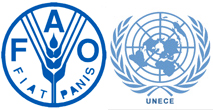The UN has released a report on the role of payments for forest ecosystem services (PES) in a green economy.
The report makes use of 14 case studies to identify the implications of PES, their potential use in a green economy and alternative options when PES may not be appropriate.

 August 2014: The UN has released a report on the role of payments for forest ecosystem services (PES) in a green economy. The report makes use of 14 case studies to identify the implications of PES, their potential use in a green economy and alternative options when PES may not be appropriate.
August 2014: The UN has released a report on the role of payments for forest ecosystem services (PES) in a green economy. The report makes use of 14 case studies to identify the implications of PES, their potential use in a green economy and alternative options when PES may not be appropriate.
Overall, the publication, which was produced jointly by the Food and Agriculture Organization of the UN (FAO), the UN Economic Commission for Europe (UNECE) and the UN Environment Programme (UNEP), provides guidance on PES schemes and highlights the important roles forests can play in a green economy.
In particular, the report examines public and private schemes, as well as those carried out as partnerships between the two. It also considers trading schemes and offsets as well as PES at the regional level. Additionally, the report examines valuation methods for ecosystem services.
With regard to enabling conditions for successful PES, the report cites the importance of: an appropriate legislative and institutional enabling environment, secure tenure, stakeholder engagement, clear frameworks for monitoring, enforcement and compliance, and methods to ensure permanence and avoid unintended negative impacts.
The report suggests that a code of conduct should be drafted that identifies when PES should be used, how valuation should be set, who should be engaged and through what methods, and guidelines on monitoring and compliance. [Publication: The Value of Forests – Payments for Ecosystem Services in a Green Economy]